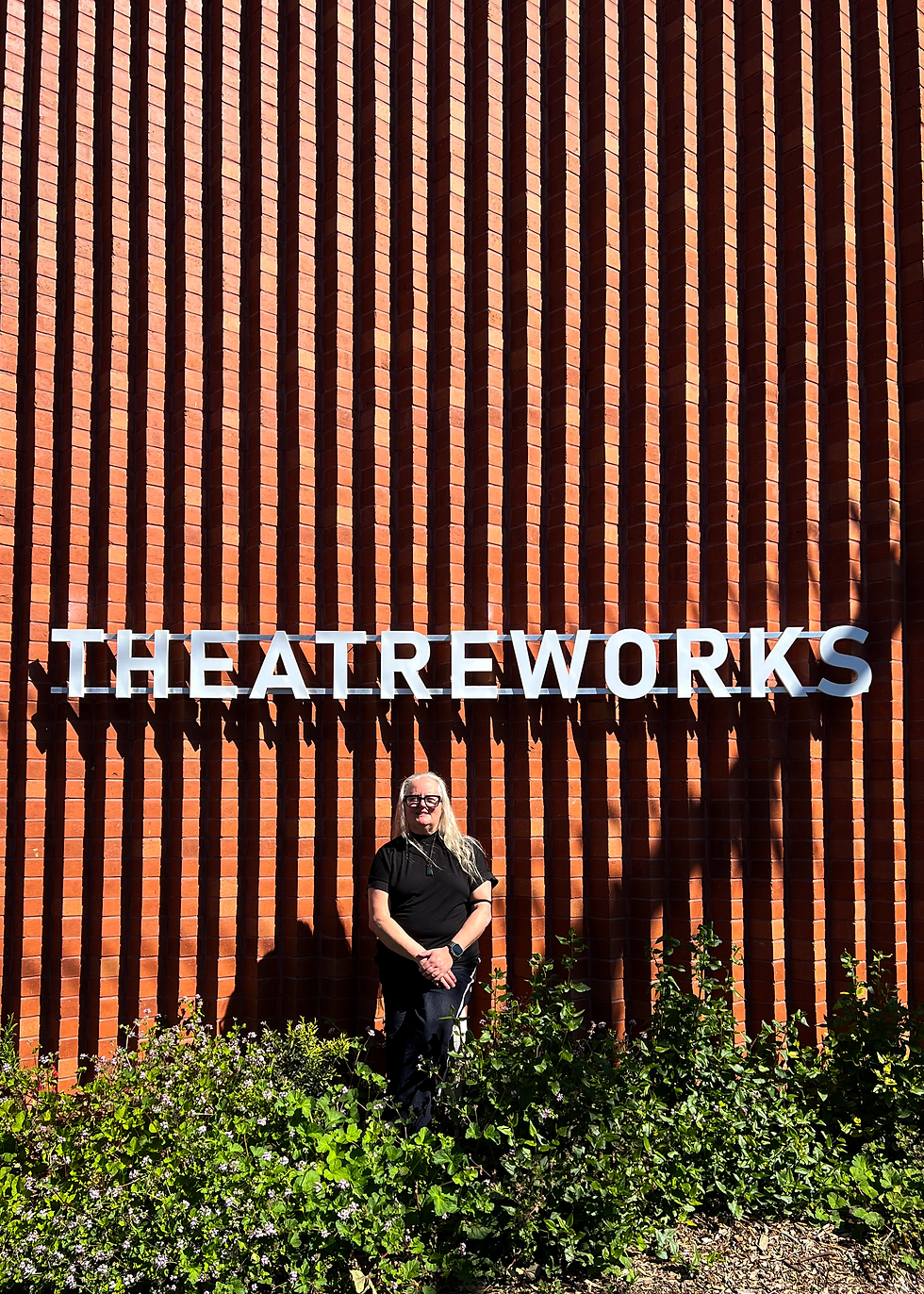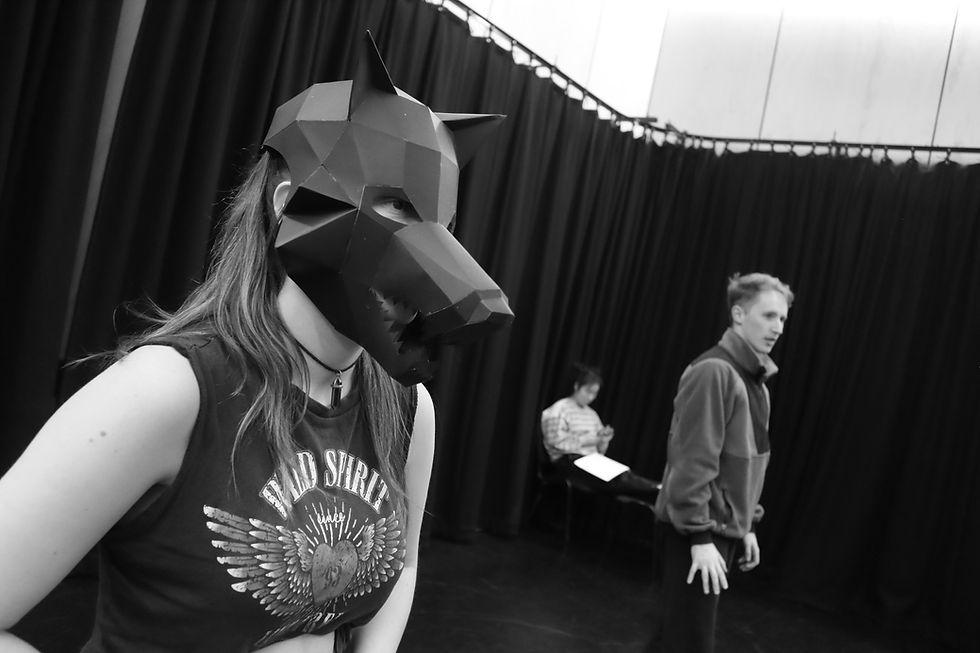In Conversation with Dan X. Harris
- TW
- Jun 8, 2022
- 4 min read
"Humour is central to this play, in both content and political ways. The many dozens of people I have spoken with who lived with BPD are often very funny people, and even those who aren't, use humour as an important tool for surviving the ravages of this disorder." playwright, Dan X. Harris chats with us about their new work 'All the Rage' (28 June - 2 July) and how humour plays a key role in not just the play but in everyday lives of people living with borderline personality disorder.

Q: Can you recall a specific moment that prompted you to write All The Rage?
A: Absolutely. I was interviewing an older man with BPD who had really had a hard time all his life, although he was also - like many people BPD - ambitious and a high achiever. He hadn't gotten a diagnosis until later in life, and by then he'd really exhausted himself. He was hilariously funny, a kind of very disarming black humour, which appealed to me as a New Yorker! For me, his story really highlighted a lot of the trends in current BPD research and lived experience - a bias toward thinking of it as a 'female' disorder, rather than see how it manifests, sometimes differently, in male-identifying people; a tendency to think of it as a young person's disorder; the sense of humour that keeps so many folks with BPD alive and able to manage the challenges of this disorder.
Q: What are some of the themes you wanted to explore in this work?
A: Certainly I was interested in humour, given the bleak picture of BPD painted in popular culture and research literature. I was also interested in the resilience and enormous empathy that people with BPD demonstrate and talk about a lot. And as a trans person, I'm also deeply interested in the simplistic gendered nature of BPD research and the medical establishment's approach to the disorder and its treatment.
Q: Can you take us through the development and dramaturgical process involved in creating All the Rage, and how interviews with people with lived experience of Borderline Personality Disorder (BPD) have influenced the work.
A: This play has benefited from several iterations, and creative teams, that have contributed to the production audience members will see here at TW. It started in 2020 when I interviewed 10 people living with BPD, online. I told them from the beginning that the interviews were intended to be turned into a theatre piece, and with a focus on humour. They were inspiring, diverse, and passionate people who generously shared their stories and in some cases their friendship still. The participants all have reviewed their transcripts, and they will be invited to the show. Several are, I know, already booked in. I wrote a couple of drafts and shared them with a research team I was working with at the time which included directors, a playwright, and performance makers. They gave me invaluable feedback and a couple of live readings. I was meant to have this production at Theatre Works originally in 2021 but it was postponed due to COVID, so instead we mounted a creative development online, with Merophie Carr directing, and Jason Geary and Joanne Davis in the 2 roles (Joanne has remained in the cast but Mel is now played by Alex Pinder). I had extended dramaturgical work with the amazing Rebecca Lister in early 2021, sound by Moses Carr, and we recorded that version of the play online. That version was presented at a conference on personality disorders at Project Air, University of Wollongong, with researchers, health providers, and those with lived experience present. I received lots of supportive encouragement and also some great suggestions for changes, which I made. This year, we are so happy to have the opportunity to come back to TW live, and Deborah Leiser-Moore has taken on the direction this time and it's just an exciting new version of the work, one which I know audience will really enjoy. The humour is there, but so is the struggle, and it's a deeply human, accessible visit into the intense world of BPD.
Q: Can you tell us how humour plays a role in this play?
Sure. Humour is central to this play, in both content and political ways. The many dozens of people I have spoken with who lived with BPD are often very funny people, and even those who aren't, use humour as an important tool for surviving the ravages of this disorder. Importantly, within the BPD community, it's a real sign of trust and safety when folks with this diagnosis can laugh together about some of the darker sides of life. Audiences may find some of this humour to be confronting, and some of the harshest laughs have been cut out of this version of the play, but to me humour is absolutely core to the power and politics of All the Rage. We want audiences to have a great time, to be able to enter the world of Mel and Mags, but also to understand that these are two folks who have been struggling hard with this disorder, and the intimacy and relief of being able to laugh about it together is a great gift. Politically, many of those with BPD struggle with the stereotypes of this disorder, and it's a grim set of stereotypes indeed. So for community members, to have a representation like this, with laughter and empathy, is an important and deeply political counter-narrative to those dark and often hopeless medicalised narratives that jump out at you when you first dip into the literature on BPD.
Q: If you could invite anyone to All the Rage, who would it be and why?
This one's easy: 79-year old Marsha Linehan, the American psychotherapist, author and professor who developed DBT, the gold standard treatment for BPD, from a combination of Cognitive Behaviour Therapy and Mindfulness Meditation. She herself suffers from BPD, which informed her work, and dispels that stereotype of health practitioners/researchers and those with lived experience being on opposite sides of the treatment/healthcare fence. She's a hero to many thousands of people, and she's also very funny. She would be my VIP on opening night. ALL THE RAGE By Dan X. Harris 28 June - 2 July BOOK TICKETS





For psychology students, a comprehensive personality disorder test is a practical way to see how different traits from various disorders (e.g., borderline, narcissistic, avoidant) are assessed.
Understanding your emotional patterns, behaviors, and relationship dynamics is key to personal growth and well-being. If you consistently struggle with emotional intensity, fear of abandonment, or an unstable sense of identity, you might consider exploring resources related to BPD. A free BPD test online can serve as a private way to reflect on these experiences. The questions are designed to highlight common symptoms associated with the disorder. If the results suggest a potential concern, it's a strong indicator that seeking a professional consultation for a thorough assessment and guidance would be a beneficial next step. It’s about gaining clarity to get the right kind of support.